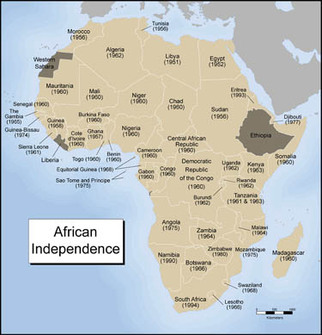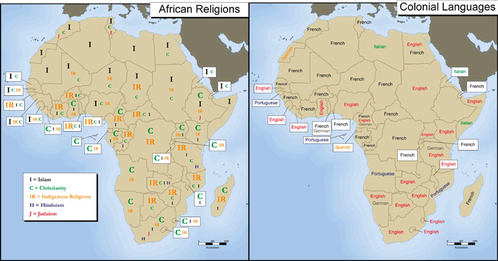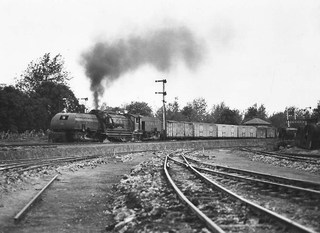Education and African Independence

Map showing year in which each African country attained independence
Loss of culture during the Scramble for Africa caused African natives to accept more modern ways, such as improved education. As many young Africans became educated, they responded with indignation at the callous way Africa was exploited, and they formed political parties and movements protesting colonial rule. As a result, Africa attained independence in the twentieth century.
Modern Infrastructure |
"New Realities"
Professor Kenneth P. Vickery, Ph.D., Yale University North Carolina State University "To move these products from points of production to the ports required, obviously, transport infrastructure. Indeed, the most lasting, genuine investment made by the colonial powers—and it was a real investment—in Africa consisted of the railway lines constructed in the first three decades of the twentieth century. When I say a lasting investment, I mean precisely that; it is still true today that Africa's principal railway lines and most of the main highways parallel them are predominantly the lines that were built in the first three decades of the century."
|
Trade and Diversification

The European presence in Africa brought various changes in African culture. It triggered in natives a desire for more modern, Western-styled clothing and goods, which opened up Africa to global trade, and it introduced a variety of languages and religions. Today, the official language of Congo is French, and Christianity is accepted by fifty to seventy-five percent of the individuals in Zambia.



